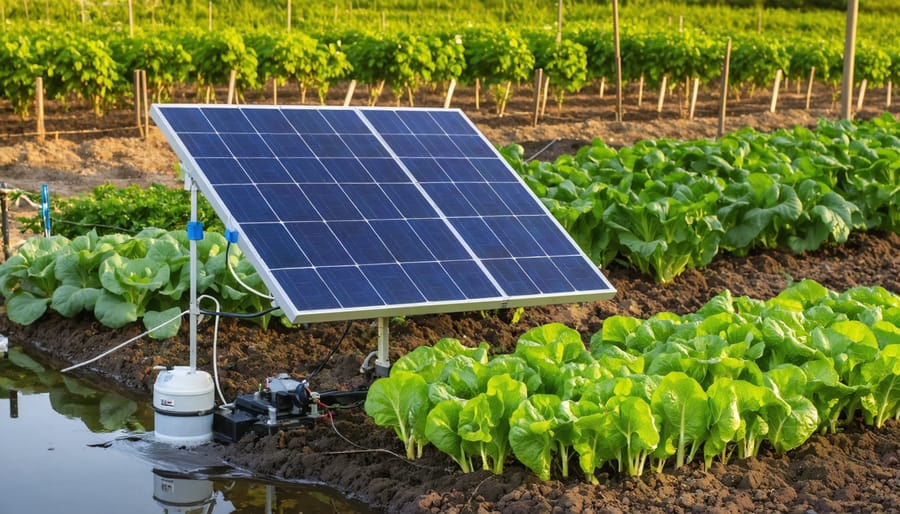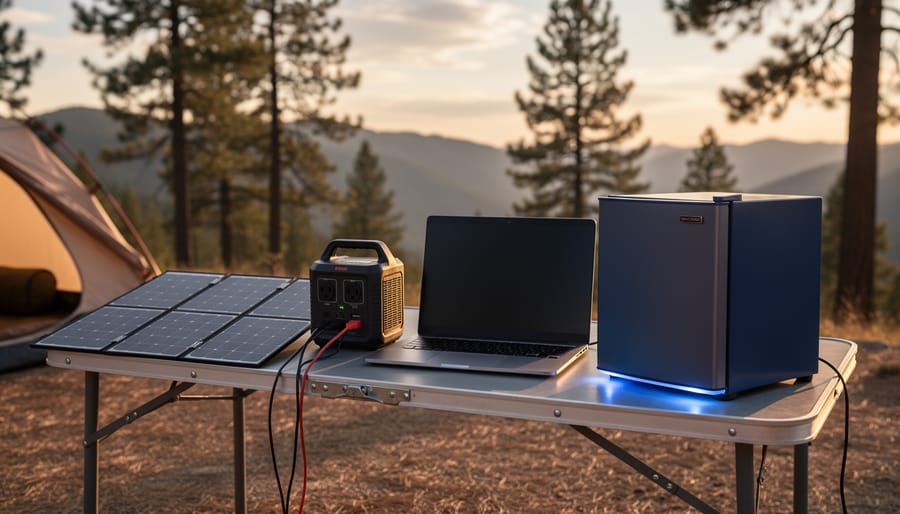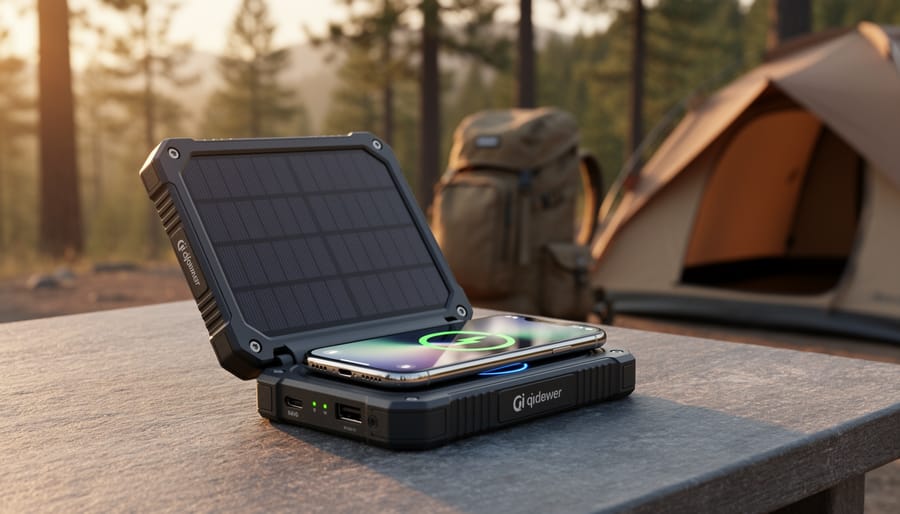Heat Pump vs Solar Hot Water Systems: A Comprehensive Comparison
Updated:

As homeowners increasingly prioritize energy efficiency and sustainability, the choice between heat pump and solar hot water systems has become a critical decision point. Both technologies offer eco-friendly alternatives to traditional water heating methods, but they differ in their operating principles, efficiency, costs, and environmental impact. This comprehensive article will delve into the intricacies of heat pump and solar hot water systems, providing you with the knowledge to make an informed decision for your home.
Understanding the Technologies
Heat Pump Water Heaters
Heat pump water heaters operate by extracting heat from the surrounding air and transferring it to the water in the storage tank. This process relies on the refrigeration cycle, similar to how air conditioners and refrigerators work, but in reverse. The main components of a heat pump water heater include:
- Evaporator: Absorbs heat from the air
- Compressor: Pressurizes the refrigerant to increase its temperature
- Condenser: Transfers heat from the refrigerant to the water
- Expansion valve: Regulates the flow of refrigerant
The great thing about them is heat pump style hot water systems come in various configurations, such as air-source, ground-source, and water-source, each utilizing different heat sources.
Solar Hot Water Systems
Solar hot water systems harness the sun’s energy to heat water directly. They consist of solar collectors, typically mounted on the roof, that absorb solar radiation and convert it into thermal energy. The heated water is then stored in an insulated tank for use throughout the home. Solar hot water systems can be classified into two main types:
- Active systems: Use pumps to circulate water or heat-transfer fluid through the collectors
- Direct circulation: Water is pumped directly through the collectors
- Indirect circulation: A heat-transfer fluid is pumped through the collectors, and a heat exchanger transfers the heat to the water
- Passive systems: Rely on natural convection to circulate water
- Integral collector-storage (ICS): Water is stored directly in the collector
- Thermosiphon: Water rises naturally as it is heated, and cooler water sinks to the bottom
Energy Efficiency and Performance
Heat Pump Water Heaters
Heat pump hot water systems are renowned for their high energy efficiency, as they can produce up to three times more heat energy than the electrical energy they consume. This efficiency is measured by the Coefficient of Performance (COP), which typically ranges from 2 to 4. However, the efficiency of heat pump water heaters can be affected by several factors:
- Climate: Heat pumps work most efficiently in warm climates, as they rely on extracting heat from the air. In colder conditions, their efficiency may decrease.
- Installation location: The performance of a heat pump water heater can be influenced by the temperature and humidity of the installation space.
- Sizing: Proper sizing of the heat pump and storage tank is crucial for optimal efficiency and performance.
Solar Hot Water Systems
Solar hot water systems can achieve high efficiencies in converting solar energy into thermal energy, with typical efficiencies ranging from 70% to 80%. However, their performance is subject to several variables:
- Solar radiation: The efficiency of solar hot water systems is directly dependent on the availability and intensity of sunlight. Cloudy or overcast conditions can reduce their performance.
- Collector orientation and tilt: Optimal positioning of the solar collectors is essential for maximizing energy capture.
- System design: Proper sizing of the collectors and storage tank, as well as the choice of circulation method (active or passive), can impact overall efficiency.
Cost Considerations
Heat Pump Water Heaters
The initial cost of a heat pump water heater is generally lower than that of a solar hot water system. However, the long-term operating costs should also be considered:
- Energy costs: Although heat pump water heaters consume electricity, their high efficiency results in lower energy bills compared to traditional electric water heaters.
- Maintenance costs: Heat pump water heaters require regular maintenance, such as cleaning the air filter and checking the refrigerant levels, which can add to the overall cost.
- Incentives and rebates: Many governments offer financial incentives and rebates for installing heat pump water heaters, which can help offset the initial investment.
Solar Hot Water Systems
Solar hot water systems typically have a higher upfront cost due to the price of solar collectors and installation labor. However, the long-term savings can be significant:
- Energy costs: Since solar hot water systems rely on free solar energy, the operating costs are minimal once installed.
- Maintenance costs: Solar hot water systems generally require less frequent maintenance compared to heat pump water heaters, but any repairs or replacements can be more expensive.
- Incentives and rebates: Solar hot water systems often qualify for government incentives, such as rebates and tax credits, which can help reduce the initial investment.
Environmental Impact and Sustainability
Both heat pump and solar hot water systems offer environmental benefits compared to conventional water heating methods:
Heat Pump Water Heaters
- Reduced greenhouse gas emissions: By using electricity more efficiently, heat pump water heaters contribute to lower carbon emissions.
- Renewable energy compatibility: Heat pump water heaters can be powered by renewable electricity sources, such as solar panels, further reducing their environmental impact.
Solar Hot Water Systems
- Minimal carbon footprint: Solar hot water systems have a negligible environmental impact during operation, as they directly use renewable solar energy.
- Reduced reliance on fossil fuels: By harnessing the sun’s energy, solar hot water systems decrease the demand for fossil fuel-based energy sources.
Factors to Consider When Choosing
When deciding between a heat pump and solar hot water system, several key factors should be considered:
- Climate and geographic location: Solar hot water systems are most effective in regions with abundant sunlight, while heat pump water heaters perform best in moderate to warm climates.
- Available space: Solar hot water systems require sufficient roof space for collector installation, whereas heat pump water heaters need a suitable location for the unit and storage tank.
- Hot water demand: The size and capacity of the system should be chosen based on the household’s hot water needs.
- Budget: The initial cost, long-term savings, and available incentives should be weighed when determining the most cost-effective option.
- Environmental goals: Both systems offer environmental benefits, but the specific priorities of the household should be considered.
Hybrid Systems: Combining Heat Pumps and Solar
For those seeking to maximize energy efficiency and sustainability, a hybrid system combining heat pump and solar technologies can be an attractive solution. By integrating a heat pump water heater with solar panels, households can:
- Utilize solar energy to power the heat pump, reducing reliance on grid electricity
- Optimize energy savings by leveraging the benefits of both technologies
- Enhance system resilience and reliability, especially in regions with variable weather conditions
Real-world examples and case studies have demonstrated the potential of hybrid systems to achieve significant energy savings and environmental benefits.
What Hot Water Systems Should You Select?
The choice between a heat pump and solar hot water system ultimately depends on a careful consideration of factors such as climate, available space, hot water demand, budget, and environmental goals. While both technologies offer energy efficiency and sustainability advantages over traditional water heating methods, their suitability may vary based on individual circumstances.
By understanding the operating principles, efficiency, costs, and environmental impact of heat pump and solar hot water systems, homeowners can make an informed decision that aligns with their specific needs and priorities. Moreover, the possibility of combining both technologies in a hybrid system presents an opportunity to optimize energy savings and minimize the household’s carbon footprint.
As advancements in heat pump and solar technologies continue to emerge, the potential for these systems to revolutionize residential water heating and contribute to a more sustainable future grows increasingly promising. By embracing these eco-friendly alternatives, homeowners can take a significant step towards reducing their energy consumption, lowering their utility bills, and promoting a greener planet for generations to come.









